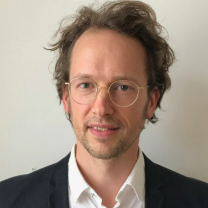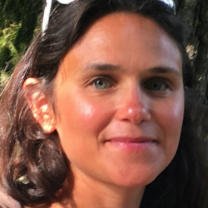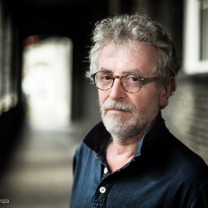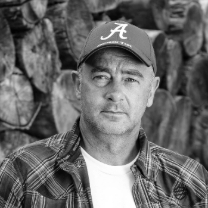
SpeakersMichael Koslowski - Psychiatrist, psychotherapist and researcher at CHU Charité Berlin Dr. Michael Koslowski began his academic journey studying philosophy and medicine at Charité and Humboldt University Berlin, where he obtained his medical license in 2007. He performed his PhD in the Affective Neuroimaging research group at Charité, under Prof. Heinz, focusing on the influence of neuroleptics on the dopaminergic reward system in schizophrenia patients. As part of his postdoctoral research, he is co-leading a research group on recreational drugs. Since 2018, Dr. Koslowski’s research has centered on mental health and altered states of consciousness, especially in studies on depression, psychedelic substances and dreaming. His recent work as study coordinator and therapist for the governmentally (BMBF-) funded EPIsoDE study focusses on psilocybin for treatment-resistant depression, reflecting a growing scientific interest in the therapeutic potential of psychedelics. In this study, Dr. Koslowski is involved in several key subprojects, including research on beliefs about free will in depression and the impact of the psychedelic experience, integration in psychedelic-assisted therapy, and fMRI studies on treatment effects. Additionally, a research residency at IMéRA in 2022-2023 allowed him to focus on the renaissance of psychedelics in mental health treatment, bringing expertise from his German trial team to French researchers and psychiatrists. Alongside his research, Dr. Koslowski is a board-certified psychiatrist, integrating clinical expertise with innovative research on psychedelic treatments.
Alice Guyon - CNRS Research Director at CRPN and author
Dr. Alice Guyon is a French neuroscientist and Research Director at the CNRS, with a notable focus on psycho-neuro-endocrino-immunology and integrative health. She completed her HDR at University Paris VI and then worked extensively at the Institute of Molecular and Cellular Pharmacology (IPMC) in Nice for 22 years where she studied neuroimmune responses and physiological resilience. She recently joined Aix-Marseille University’s Center for Cognitive Psychology and Neuroscience (CRPN). Her research explores the impact of non-ordinary states of consciousness, such as meditation, hypnosis, and self-induced cognitive trance, on health and well-being. Her projects have recently expanded to investigate their impacts on memory mechanisms in relation with emotions. Her work aims to understand how these non ordinary states can influence mental and physical well-being through neurobiological mechanisms. Additionally, she is the editor-in-chief of the journal HEGEL, dedicated to integrative health research. She is active in science communication and fosters interdisciplinary collaboration, emphasizing connections between neuroscience, social transformation, and environmental health. Claire Sergent - Professor at Université Paris Cité Prof. Claire Sergent completed her Ph.D. at the Université Pierre et Marie Curie under the supervision of Stanislas Dehaene, focusing on the neural mechanisms of visual awareness, followed by postdoctoral research at University College London, where she investigated conscious perception using neuroimaging. She is now professor in cognitive neurosciences at Université Paris Cité and co-director of the masters program Cogmaster and cog-SUP. She leads pioneering research on the neural dynamics of conscious and unconscious processing. In 2022 Claire Sergent was awarded an ERC Consolidator grant for the CONSCIOUSBRAIN project. Through EEG and fMRI, her research examines how the brain integrates sensory information to create conscious experience to better understand how conscious experience emerges from neural processes, examining how different regions in the brain interact to bring information into conscious awareness. She explores how specific brain networks, especially in the prefrontal cortex, contribute to conscious awareness, providing key insights for clinical consciousness studies.
Stéphane Charpier - Sorbonne University Professor and Director of Research at the Institut du Cerveau
Pr. Stéphane Charpier is currently a professor of neuroscience at Sorbonne Université and director of the Cellular Excitability and Network Dynamics team at the Paris Brain Institute (ICM). He also member of the Scientific Board of the National Platform for End-of-life Research. In recognition of his contributions, he was awarded the Valérie Chamaillard Prize by the French Foundation for Epilepsy Research in 2011. His research focuses on the “wave of death”—a critical neural event observed in brain function cessation during anoxia or oxygen deprivation. His work has been pioneering in characterizing how the brain enters a terminal state through a process known as “anoxic depolarization,” where neurons lose their electrical charge and cease to function. He explores how this “wave of death” spreads through the brain and its potential reversibility when oxygen is restored, thus providing key insights into the brain's resilience and vulnerability at the threshold of death. His work, which involves electrophysiological recordings, has significantly contributed to understanding the continuum between life and death in neural terms, challenging traditional binary models of brain death.
Thomas Fenzl - Research Director at the Munich Center for Neurosciences - Brain & Mind
Dr. Fenzl began his academic career with a diploma in zoology from the University of Regensburg in Germany. His early career included positions as a visiting scientist at the Field Museum of Natural History in Chicago and the Hort Research Center in Auckland, New Zealand. He then completed his PhD at Ludwig Maximilian University in Munich, focusing on the neuronal control of echolocation calls in bats. Following his PhD, he began his postdoctoral research, focusing on understanding the role of sleep in psychiatric disorders, while also holding a position as Assistant Professor at the Ludwig Maximilian University in Munich. In 2011, he became the leader of his own research group at Leopold Franzens University in Innsbruck, where he studied the interaction between sleep and anxiety. Since 2018, he holds the position of Principal Investigator and Associate Professor at the Technical University of Munich, where his research focuses on the complex interactions between sleep and anaesthesia. Dr. Fenzl’s work investigates preoperative EEG biomarkers during sleep to assess cognitive deficits post-anaesthesia, with a particular focus on Alzheimer's disease. His research also examines the neurobiology of consciousness loss and recovery during anaesthesia and sleep, as well as the links between preoperative anxiety and stress, anaesthesia, and postoperative delirium. By integrating clinical anaesthesiology with advanced neuroscientific techniques, his team aims to improve patient care and outcomes.
Zoltan Dienes - Professor of psychology at the University of Sussex
Professor Zoltan Dienes received his Ph.D. in Experimental Psychology from the University of Oxford. Since 1990, he has been a lecturer in Experimental Psychology at the University of Sussex and was appointed Professor of Psychology in 2008. He is currently the Director of the Centre for Open Science and Research Reform within the School of Psychology, Faculty of Science, Engineering and Medicine. Professor Dienes' research spans two main areas: consciousness science and scientific reform. His consciousness research focuses on the distinction between conscious and unconscious mental states, implicit learning, and phenomenological control, including hypnosis, with one of the most active labs in this field globally. In the area of scientific reform, he has pioneered methods for statistical inference using Bayesian approaches and advocates for obtaining evidence for null effects, creating one of the first online Bayes factor calculators in 2008. As an advocate for open science, Professor Dienes was a member of the Registered Reports editorial board at Cortex in 2013 and is a co-founder of the Peer Community In Registered Reports, an open-access platform for research dissemination. He is also the author of the book Understanding Psychology as a Science: An Introduction to Scientific and Statistical Inference, which introduces readers to key theories in scientific methodology and promotes critical thinking for research design and evaluation.
|






